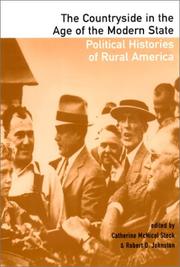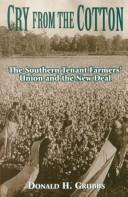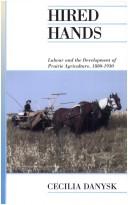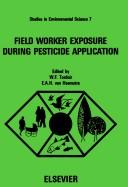| Listing 1 - 10 of 42 | << page >> |
Sort by
|
Book
ISBN: 0773559531 9780773559530 9780773559547 077355954X 9780773558564 077355856X 9780773558571 0773558578 Year: 2019 Publisher: Montreal : McGill-Queen's University Press,
Abstract | Keywords | Export | Availability | Bookmark
 Loading...
Loading...Choose an application
- Reference Manager
- EndNote
- RefWorks (Direct export to RefWorks)
South African agriculture is characterized by growing labour unrest, evinced in recent years by high-profile strikes, but little is known about the sources and forms of day-to-day struggle. In Chiefs of the Plantation Lincoln Addison examines how labour conflict is fuelled by changing management practices and how workers respond and resist across spatial, sexual, and spiritual domains. Depicting, in rich ethnographic detail, daily life on a plantation, Addison describes how agriculture has been restructured in the post-apartheid era through a delegation of authority from white landowners to black intermediaries. He explains that while this labour regime enables the profitability of plantations, it gives rise to a fragile moral economy in which perceptions of what is tolerable and what is exploitation frequently clash. In this environment, transactional sex and Christian worship emerge as important terrains of gendered and spiritual contestation where women and low-ranking workers remain resilient in the face of unequal power relations. Meanwhile, plantations project an appearance of benevolent paternalism, particularly in the narratives and self-identity of white landowners. This book reveals how, in the everyday life of the community, both the plantation and the compound where the workers live serve as central grounds for the negotiation of labour relations. A groundbreaking study that uncovers how migrant plantation workers challenge their exploitation, Chiefs of the Plantation is a rare glimpse into the often hidden world of labour struggle on contemporary plantations.
Agricultural laborers --- Plantations --- Farms --- Agricultural workers --- Farm labor --- Farm laborers --- Farm workers --- Farmhands --- Farmworkers --- Employees --- E-books
Book
ISBN: 0128172681 0128164093 9780128172681 9780128164099 Year: 2018 Publisher: Chantilly Elsevier Science & Technology
Abstract | Keywords | Export | Availability | Bookmark
 Loading...
Loading...Choose an application
- Reference Manager
- EndNote
- RefWorks (Direct export to RefWorks)
The Farm Labor Problem: A Global Perspective explores the unique character of agricultural labor markets and the implications for food production, farm worker welfare and advocacy, and immigration policy. Agricultural labor markets differ from other labor markets in fundamental ways related to seasonality and uncertainty, and they evolve differently than other labor markets as economies develop. We weave economic analysis with the history of agricultural labor markets using data and real-world events. The farm labor history of California and the United States is particularly rich, so it plays a central role in the book, but the book has a global perspective ensuring its relevance to Europe and high-income Asian countries. The chapters in this book provide readers with the basics for understanding how farm labor markets work (labor in agricultural household models, farm labor supply and demand, spatial market equilibria); farm labor and immigration policy; farm labor organizing; farm employment and rural poverty; unionization and the United Farm Workers movement; the Fair Food Program as a new approach to collective bargaining; the declining immigrant farm labor supply; and what economic development in relatively low-income countries portends for the future of agriculture in the United States and other high-income countries. The book concludes with a chapter called "Robots in the Fields," which extrapolates current trends to a perhaps not-so-distant future. The Farm Labor Problem serves as both a guide to policy makers, farmworker advocates and international development organizations and as a textbook for students of agricultural economics and economics.
Agricultural laborers. --- Labor market. --- Employees --- Market, Labor --- Supply and demand for labor --- Markets --- Agricultural workers --- Farm labor --- Farm laborers --- Farm workers --- Farmhands --- Farmworkers --- Supply and demand --- E-books

ISBN: 1501717731 9781501717734 0801438500 9780801438509 0801487714 9780801487712 Year: 2018 Publisher: Ithaca, NY : Cornell University Press,
Abstract | Keywords | Export | Availability | Bookmark
 Loading...
Loading...Choose an application
- Reference Manager
- EndNote
- RefWorks (Direct export to RefWorks)
"However urban the nation has become," Catherine McNicol Stock and Robert D. Johnston write, "twenty percent of its citizens still live outside major metropolitan areas. Moreover, rural economic activity-agricultural, extractive, recreational, and industrial-has an enormous impact on the nation's overall economic well-being. The stories of contemporary rural people still have the power to move us.... They reflect the values, dreams, and ideals at the core of the economically, racially, and ethnically diverse American experience."The Countryside in the Age of the Modern State moves rural history into explorations of modern politics: diverse rural peoples and their complex relationships to the American state in the twentieth century. The volume's contributors examine African American progressive farm organizers; the experiences of Caribbean and Mexican farm laborers; agrarian intellectuals in the New Deal; the politics of land and landscape in the Rocky Mountain west; and the origins of today's rural political movements.
Populism --- Agricultural laborers --- Political science --- Agricultural workers --- Farm labor --- Farm laborers --- Farm workers --- Farmhands --- Farmworkers --- Employees --- History. --- United States --- Rural conditions.

ISBN: 1610751159 9781610751155 1557285225 9781557285225 Year: 2000 Publisher: Fayetteville : University of Arkansas Press,
Abstract | Keywords | Export | Availability | Bookmark
 Loading...
Loading...Choose an application
- Reference Manager
- EndNote
- RefWorks (Direct export to RefWorks)
Tenant farmers --- Sharecroppers --- Agricultural laborers --- Cotton plantation workers --- New Deal, 1933-1939. --- New Deal, 1933-1939 --- Cotton trade --- Plantation workers --- Agricultural workers --- Farm labor --- Farm laborers --- Farm workers --- Farmhands --- Farmworkers --- Employees --- Farmers --- Farm tenancy --- History. --- Labor unions --- Southern Tenant Farmers' Union --- National Farm Labor Union (U.S.) --- STFU --- STFU (Southern Tenant Farmers' Union)

ISBN: 1442659904 1442655313 0771025521 9781442659902 9780771025525 Year: 2014 Publisher: Toronto, [Ontario] ; Buffalo, [New York] ; London, [England] : University of Toronto Press,
Abstract | Keywords | Export | Availability | Bookmark
 Loading...
Loading...Choose an application
- Reference Manager
- EndNote
- RefWorks (Direct export to RefWorks)
Farm workers were central to the development of Canada's prairie West. From 1878, when the first shipment of prairie grain went to international markets, to 1929, when the Great Depression signalled the end of the wheat boom, the role of hired hands changed dramatically. Prior to World War One, hired hands viewed themselves and were treated in the rural community as equals to their farmer employers. Many were farmers in training, informal apprentices who worked for wages so they could accumulate the capital and experience needed to secure their own free 160-acre parcels of land. In later years, as free lands were taken, hired hands increasingly faced the hkehhood of remaining waged labourers on the farms of others. They became agricultural proletarians.In this first full-length study of labour in Canadian prairie agriculture during the period of settlement and expansion, Cecilia Danysk examines the changing work and the growing rural community of the West through the eyes of the workers themselves. World War One was a catalyst in bringing into focus the conflicting nature of labour-capital relations and the divergent aims of workers and their employers. Yet, attempts at union organization were unsuccessful because most hired hands worked alone and because governments assisted farmers by stifling such attempts. The workers' greatest form of workplace control was to walk off one job and find another.Previously published by McClelland & Stewart.
Agricultural laborers --- Agriculture --- History. --- Farming --- Husbandry --- Agricultural workers --- Farm labor --- Farm laborers --- Farm workers --- Farmhands --- Farmworkers --- Industrial arts --- Life sciences --- Food supply --- Land use, Rural --- Employees --- History --- E-books --- Prairie Provinces. --- Canada --- Western Canada
Book
ISBN: 1583673350 1583673342 9781583673348 9781583673331 1583673334 9781583673324 1583673326 Year: 2013 Publisher: New York : Monthly Review Press,
Abstract | Keywords | Export | Availability | Bookmark
 Loading...
Loading...Choose an application
- Reference Manager
- EndNote
- RefWorks (Direct export to RefWorks)
In 1971, Bruce Neuburger-young, out of work, and radicalized by the 60s counterculture in Berkeley-took a job as a farmworker on a whim. He could have hardly anticipated that he would spend the next decade laboring up and down the agricultural valleys of California, alongside the anonymous and largely immigrant workforce that feeds the nation. This account of his journey begins at a remarkable moment, after the birth of the United Farm Workers union and the ensuing uptick in worker militancy. As a participant in organizing efforts, strikes, and boycotts, Neuburger saw first-hand the struggles
Agricultural laborers --- Strikes and lockouts --- Agricultural workers --- Farm labor --- Farm laborers --- Farm workers --- Farmhands --- Farmworkers --- Employees --- Combinations of labor --- Lockouts --- Work stoppages --- Direct action --- Labor disputes --- Strikebreakers --- Labor unions --- E-books
Book
ISBN: 1623495695 9781623495695 9781623495688 Year: 2017 Publisher: College Station : Texas A&M University Press,
Abstract | Keywords | Export | Availability | Bookmark
 Loading...
Loading...Choose an application
- Reference Manager
- EndNote
- RefWorks (Direct export to RefWorks)
Agricultural laborers --- Agriculture --- Farming --- Husbandry --- Industrial arts --- Life sciences --- Food supply --- Land use, Rural --- Agricultural workers --- Farm labor --- Farm laborers --- Farm workers --- Farmhands --- Farmworkers --- Employees --- History. --- History --- E-books
Book
ISBN: 1772122726 9781772122725 9781772121384 9781772122732 1772122734 9781772122749 1772122742 177212138X Year: 2016 Publisher: Edmonton, Alberta : The University of Alberta Press,
Abstract | Keywords | Export | Availability | Bookmark
 Loading...
Loading...Choose an application
- Reference Manager
- EndNote
- RefWorks (Direct export to RefWorks)
Agricultural laborers --- Agricultural laws and legislation --- Legal status, laws, etc. --- Social conditions. --- Agriculture --- Law, Agricultural --- Agriculture and state --- Agricultural workers --- Farm labor --- Farm laborers --- Farm workers --- Farmhands --- Farmworkers --- Employees --- Law and legislation
Book
ISBN: 9780520275133 0520275136 9780520275140 0520275144 0520954793 9780520954793 9781299557901 1299557902 Year: 2013 Publisher: Berkeley, Calif. : University of California Press,
Abstract | Keywords | Export | Availability | Bookmark
 Loading...
Loading...Choose an application
- Reference Manager
- EndNote
- RefWorks (Direct export to RefWorks)
Fresh Fruit, Broken Bodies provides an intimate examination of the everyday lives and suffering of Mexican migrants in our contemporary food system. An anthropologist and MD in the mold of Paul Farmer and Didier Fassin, Holmes shows how market forces, anti-immigrant sentiment, and racism undermine health and health care. Holmes's material is visceral and powerful. He trekked with his companions illegally through the desert into Arizona and was jailed with them before they were deported. He lived with indigenous families in the mountains of Oaxaca and in farm labor camps in the U.S., planted and harvested corn, picked strawberries, and accompanied sick workers to clinics and hospitals. This "embodied anthropology" deepens our theoretical understanding of the ways in which social inequalities and suffering come to be perceived as normal and natural in society and in health care. All of the book award money and royalties from the sales of this book have been donated to farm worker unions, farm worker organizations and farm worker projects in consultation with farm workers who appear in the book.
Migrant agricultural laborers --- Travailleurs agricoles migrants --- Social conditions --- Conditions sociales --- Migrant agricultural laborers - United States - Social conditions. --- Migrant agricultural laborers -- United States -- Social conditions. --- Business & Economics --- Agricultural Economics --- Social conditions. --- Agricultural migrants --- Migrant agricultural workers --- Migrant farm workers --- Migrants --- Agricultural laborers --- Migrant labor --- E-books --- Migrant agricultural laborers. --- Agricultural laborers. --- Mexican American migrant agricultural laborers. --- Migrant agricultural laborers, Mexican American --- Agricultural workers --- Farm labor --- Farm laborers --- Farm workers --- Farmhands --- Farmworkers --- Employees --- anthropologist. --- anthropology. --- arizona desert. --- biography. --- borderlands. --- crossing the border. --- cultural analysis. --- deportation. --- deported immigrants. --- embodied anthropology. --- farm labor camps. --- health and wellness. --- health care. --- human rights. --- immigration stories. --- immigration. --- memoir. --- mexican immigrants. --- oaxaca. --- social inequalities. --- us mexico relations.

ISBN: 0444418792 9780444418791 9780080874661 0080874665 1281777862 9781281777867 9786611777869 6611777865 Year: 1980 Publisher: Amsterdam ; New York : New York : Elsevier Scientific Pub. Co. ; Distributors for the U.S. and Canada, Elsevier/North-Holland,
Abstract | Keywords | Export | Availability | Bookmark
 Loading...
Loading...Choose an application
- Reference Manager
- EndNote
- RefWorks (Direct export to RefWorks)
Field Worker Exposure During Pesticide Application
Hygiene. Public health. Protection --- Toxicology --- Social medicine --- Crop damage --- teeltschade --- Pesticides --- Agricultural laborers --- Pesticide applicators (Persons) --- Applicators, Pesticide (Persons) --- Farmers --- Spraying and dusting in agriculture --- Agricultural workers --- Farm labor --- Farm laborers --- Farm workers --- Farmhands --- Farmworkers --- Employees --- Economic poisons --- Agricultural chemicals --- Pests --- Poisons --- Application --- Diseases --- Control --- Equipment and supplies --- Diseases&delete& --- Congresses --- Application&delete& --- Toxicology&delete&
| Listing 1 - 10 of 42 | << page >> |
Sort by
|

 Search
Search Feedback
Feedback About UniCat
About UniCat  Help
Help News
News